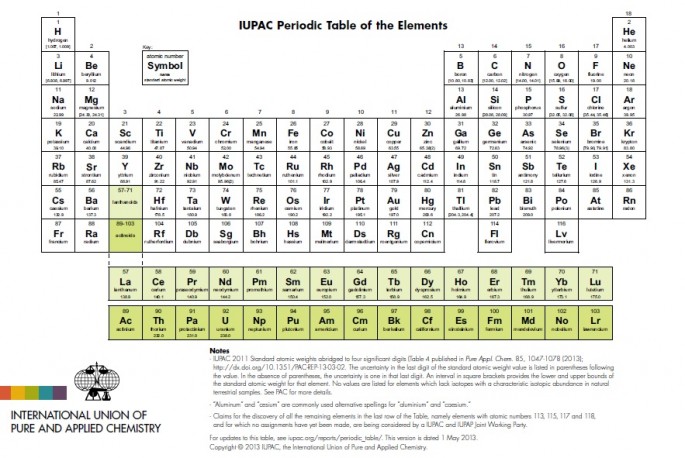The periodic table of elements has been added with four new elements that can ultimately change the basic foundations of science.
These elements, namely, 113, 115, 117 and 118 are now added to the seventh row, making it complete in which they were already verified by the International Union of Pure and Applied Chemistry last December 30. Their names and symbols are yet to be finalized.
These new elements are discovered by an international team of chemists from Japan, USA and Russia, who will also decide the new names of these new elements.
These elements are also man made that are considered as super heavy elements where scientists placed lighter nuclei that are inserted within each other which were then uncovered from radioactive decay, only existing for a mere fraction of a second before the decay ultimately transforms into other elements.
Since 2004, these elements are being examined and studied upon, where prior research revealed the discovery of element 113 where it passed a battery of crucial tests to become officially admitted to the periodic table.
This discovery of element 113 was made by former RIKEN president and as well as researchers from RIKEN, Ryoji Noyori who said that this element is an incredible achievement that can be recognized as a greater value than an Olympic gold medal.
The last elements to be added were elements 114 and 116 which were added in 2011.
These new elements will now complete the seventh row of the table or the "period". Since the periodic table is systematically placed together, the other elements can be predicted as well as properties of the last places to be filled in the table.
The requirements for the new names of these new elements must be derived from a mythological concept, a place or country, a mineral or a property or name of a scientist.
For the meantime, the elements will be known for their numbers as 113 is called ununtrium translated as 113-ium, possessing the symbol Uut. Element 115 will be ununpentium with symbol Uup, 117 is now ununseptium or Uus and 118 will be known as ununoctium or Uuo.



























